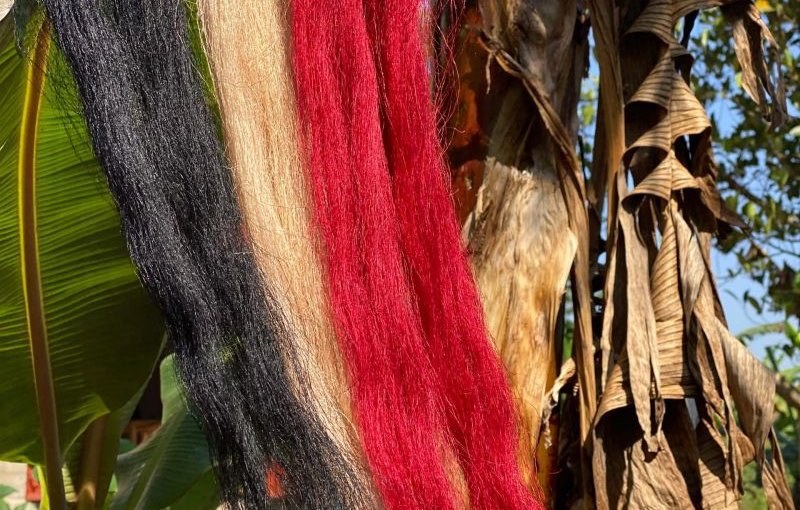Uganda’s hair and beauty industry is embracing a green revolution, with innovators leading the way in producing eco-friendly hair extensions from banana stalks. This initiative has garnered the support of the Uganda National Bureau of Standards (UNBS), which is working closely with manufacturers to establish national standards for emerging sustainable innovations in the sector.
Recently, UNBS held a stakeholder workshop at TexFad, a factory in Kasayi, Kyampisi Sub-county, Mukono District, to explore natural alternatives to synthetic hair products. The workshop focused on assessing the safety and market readiness of these new eco-friendly extensions.
Levy Brian Kaneene from UNBS explained that the bureau began engaging with local manufacturers once they started producing extensions from natural materials like banana stalk fibers. “Manufacturers approached us to ensure the quality of their products as they transitioned to natural fibers,” Kaneene said. “Our goal is to assess whether these products meet safety and performance standards before entering the broader market.”
TexFad’s CEO, Kimari Muturi, highlighted Uganda’s position as one of the world’s leading banana producers, generating vast amounts of agricultural waste in the form of banana stalks, which are typically discarded. However, these stalks contain durable fibers that are perfect for sustainable manufacturing.
“We’re turning agricultural waste into valuable products,” Muturi said. “The fibers from banana stalks are strong enough to make natural hair extensions. We’ve created jobs for over 40 people and are attracting significant attention from international markets.” Muturi also emphasized how the initiative benefits local banana farmers, who receive training and equipment to process the fibers before selling them to TexFad, creating a sustainable value chain that supports rural communities.
Hairdresser Maria Maureen Nabulime, an early adopter of the new extensions, praised the banana fiber products for being durable, eco-friendly, and safer than synthetic alternatives. She voiced concerns about the health risks of synthetic hair products, which have been linked to illnesses in women.
“These natural fiber extensions are safer and last longer, and they’re better for the environment,” Nabulime said. “Synthetic hair products have been associated with health issues like cancer, but these extensions are a healthier option.”
Edwin Kamara, a researcher and lecturer at Busitema University, commended the project for transforming agricultural waste into a high-value commodity. He suggested that such innovations could be incorporated into academic programs to develop expertise in sustainable manufacturing.
“This initiative shows how agricultural waste can be converted into valuable products,” Kamara said. “We plan to encourage more Ugandans to specialize in sustainable innovations through education and entrepreneurship.”
As UNBS continues to engage with stakeholders to establish industry standards, Uganda’s hair and beauty sector is set to lead the way in green innovation, proving that beauty and sustainability can truly grow from the same stalk.
